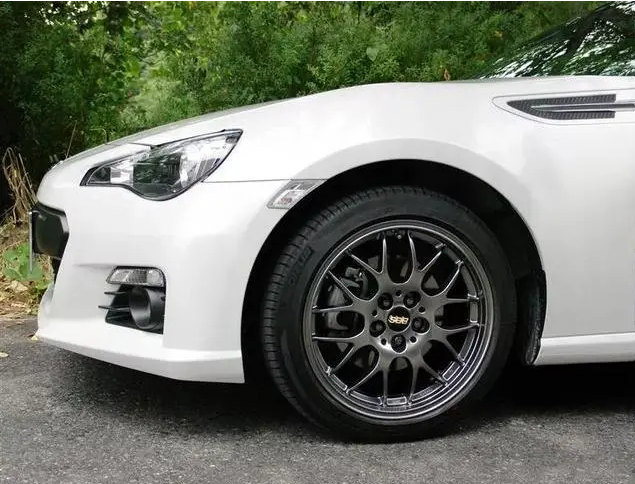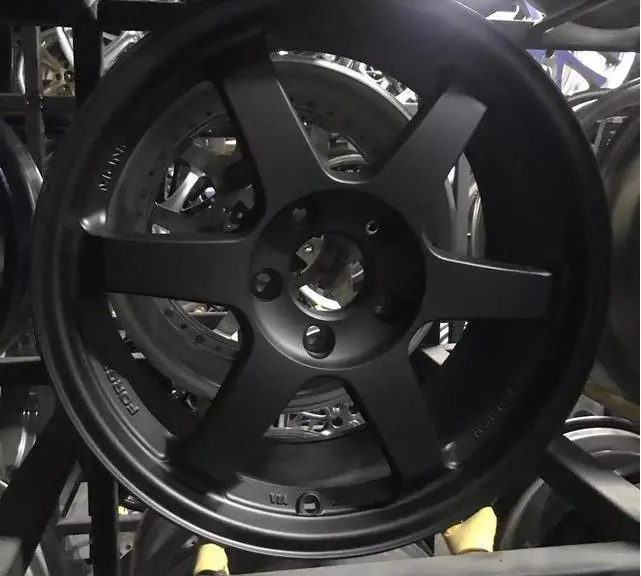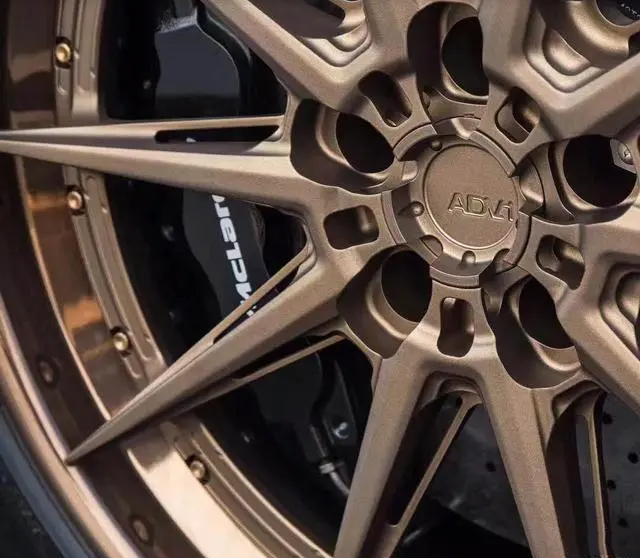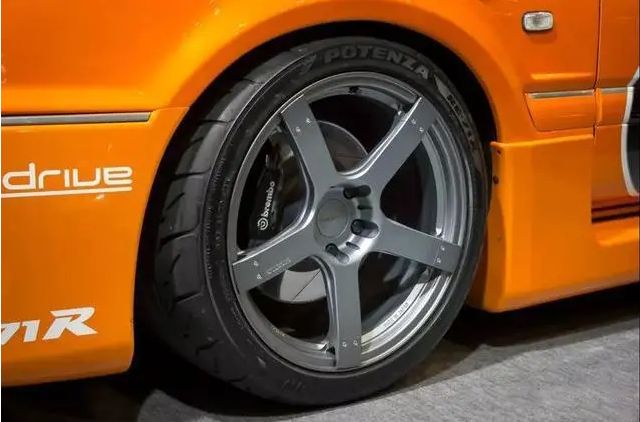This year, I want to systematically and comprehensively explain some modification-related knowledge to everyone, with the primary goal of helping people make fewer choices and avoid unnecessary expenses when modifying their vehicles.
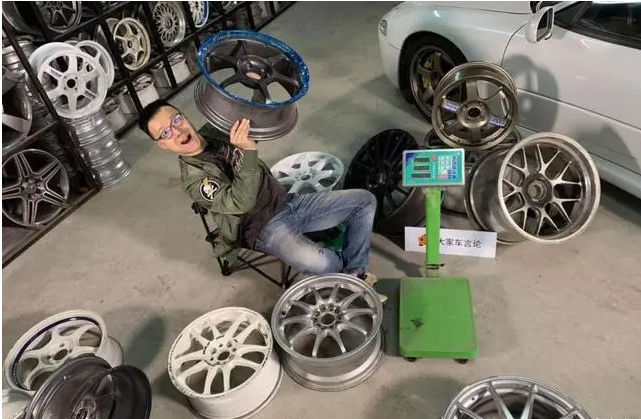
semi forged wheels (4)
Firstly, I plan to divide the topic into two parts: an article and a video, to address the frequently asked questions (FAQs) about modifying wheel rims. Today, I will start with an article to cover some theoretical aspects that may not be easily absorbed through videos. This will serve as a foundation for understanding wheel rim modifications. In the following week (or the week after next), we will release a video to demonstrate how to choose wheel rims effectively.
Q1: We often hear people mention terms like casting, forging, and semi-forging when talking about wheel rims. What do these terms mean?
A1: Casting literally means melting aluminum alloy material into a liquid state, pouring it into a mold, and allowing it to cool and solidify to form a wheel rim. Casting wheel rims can be further categorized into low-pressure casting and high-pressure casting. Low-pressure casting is cost-effective and has a fast production cycle, which is why original equipment manufacturer (OEM) wheel rims are usually made using this method. In the case of modified wheel rims, additional pressure is applied to the aluminum mold after casting to optimize the molecular bonding and enhance the mechanical properties, resulting in a lighter weight.
Forging wheel rims, on the other hand, involve shaping the aluminum material directly into a wheel rim using forging machines capable of generating thousands of tons of pressure. Since forging wheel rims do not undergo the melting-solidification process, the molecular structure remains unchanged, and the molecular bonds are not disrupted. Moreover, during the forging process, the molecular bonding becomes even tighter, resulting in improved mechanical properties compared to casting wheel rims.
Currently, the domestically available forging wheel rims mainly include the Volk Racing series by Rays, BBS, Forged Rong She (TWS), and some wheel rims under the OZ and Enkei brands.
Semi-forging, as the name suggests, lies between forging and casting. If we compare casting to making ice cream with fruit juice and forging to shaping dough into pastries, then semi-forging is like making a cake using a mixture of beaten eggs and flour. It falls between casting and forging in terms of cost and mechanical performance.
However, this is also the dilemma of semi-forging: it is not as cheap as casting, and for those pursuing cost-effectiveness, it may not be the ideal choice. Furthermore, it does not match the superior performance of forging, so semi-forging has never been a mainstream wheel rim production method.
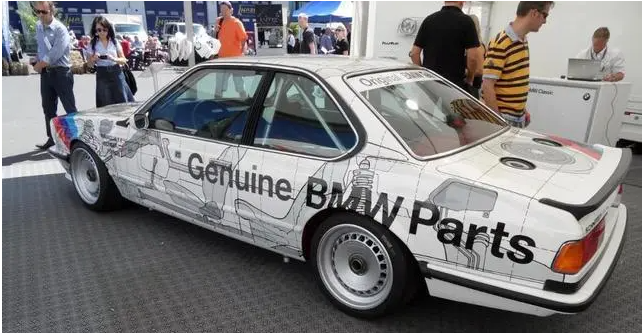
semi forged wheels (7)
Q2: Does this mean that forging wheel rims are the best choice?
Let me tell you a joke: the TE37 forged wheel rim, a classic example, can be heavier than certain casting wheel rims.
A2: Theoretically, forging can achieve the highest rigidity-to-weight ratio. In other words, for the same weight, forged wheel rims have higher rigidity (commonly referred to as “stiffness”). Alternatively, if the same level of rigidity is desired, forging wheel rims can be lighter. However, the rigidity of a wheel rim is also influenced by its design. Some wheel rims manufactured using spin-casting processes, such as the TC105N by Weds, RPF1 by Enkei, and N718 by Yafandi, can achieve similar weights to forged wheel rims. In certain cases, they can even be lighter than forged wheel rims (e.g., the original version of TE37).
Therefore, we cannot definitively say that forging wheel rims are always the best choice, considering the price factor. Taking a set of 17x7J wheel rims as an example, the price range for new forged wheel rims is generally between 4,500 to 6,000 units of local currency. Remember, this is the price per wheel, so you need to multiply it by four. Consequently, the cost quickly exceeds 20,000 units of currency for a set. On the other hand, casting wheel rims are more affordable, with OZ, Enkei, and Work priced at about half the cost. Domestic brands like Yafandi and Artka are even cheaper, costing half the price of those mentioned earlier. With the price of one forged wheel rim, you can purchase a decent domestically produced spin-casting wheel rim.
If budget is not a concern, then opting for forged wheel rims is a viable choice. However, if you are reluctant to invest in forged wheel rims but still desire their performance benefits, the previously mentioned casting wheel rims are highly recommended. These casting wheel rims are lightweight and offer excellent cost-effectiveness, weighing only around 500 grams more than extremely lightweight forged wheel rims.
Q3: What is spin-casting?
A3: Conventional OEM wheel rims are cast as a single unit, with the casting mold defining the shape of the rim and spokes. The wheel rim’s shape is formed in a single casting processwhere molten aluminum alloy is poured into the mold and allowed to cool and solidify.
In contrast, spin-casting, also known as flow forming or rotary forging, is a manufacturing process that involves spinning a pre-formed wheel rim while applying pressure to shape it. The initial pre-formed shape is a smaller and thicker blank, which is mounted on a spinning machine. As the machine spins, rollers apply pressure to the blank, causing it to stretch and form the desired shape. This process allows for precise control over the rim’s thickness and shape, resulting in a lighter and stronger wheel rim compared to traditional casting methods.
Spin-casting offers several advantages. It allows for the production of wheel rims with complex designs, including thinner spokes and more intricate patterns. The process also enhances the mechanical properties of the rim, such as increased strength and reduced weight. Additionally, spin-casting can achieve weight savings comparable to forging but at a lower cost.
Well-known wheel rim brands like Enkei, Weds, and Yafandi utilize spin-casting technology to produce high-quality and lightweight wheel rims. These rims provide excellent performance and are often favored by car enthusiasts and professional racers.
Q4: Are there any disadvantages to spin-casting?
A4: While spin-casting offers numerous benefits, it does have some limitations. One of the main drawbacks is that it requires a pre-formed blank to start the process. The blank needs to have sufficient material thickness to ensure it can be stretched and shaped without compromising its integrity. This means that designs with extremely aggressive concavity or with very thin spokes may not be suitable for spin-casting.
Another consideration is the cost. While spin-casting wheel rims are generally more affordable than forged rims, they can still be more expensive than traditional casting wheel rims. The complexity of the manufacturing process and the need for specialized equipment contribute to the higher price.
Additionally, spin-casting may not achieve the same level of weight reduction as forging. Forged wheel rims have the advantage of being able to redistribute material during the forging process, allowing for precise weight reduction in specific areas while maintaining strength. Spin-casting, on the other hand, relies on stretching the material to achieve weight savings, which may not be as effective in certain cases.
Despite these limitations, spin-casting remains a popular choice for enthusiasts who seek a balance between cost, performance, and design options.
In conclusion, when it comes to wheel rim modifications, there are various production methods to consider, including casting, forging, semi-forging, and spin-casting. Each method has its advantages and considerations, such as cost, performance, and design possibilities. By understanding these different approaches, you can make an informed decision based on your preferences, budget, and intended use of the wheel rims. In the upcoming video, we will delve into the practical aspects of choosing the right wheel rims for your vehicle.
Q4: What are the disadvantages of forging wheels besides being expensive? What do casting, forging, and semi-forging mean in automotive wheels?
A4: The disadvantage of forging wheels is that they are made by “squeezing” an aluminum alloy into a wheel shape, and aluminum alloy is not very ductile. Therefore: 1) The design freedom of forged wheels is restricted to some extent. 2) Since it involves “squeezing,” the use of very hard raw materials is not feasible, as it becomes difficult to shape them. Moreover, the forging process is challenging to create thick and dense spokes and achieve a very high strength in the transition area between the spokes and the rim. Due to these reasons, high hardness is achieved through casting processes.
In automotive wheels, casting, forging, and semi-forging refer to different manufacturing processes used to produce the wheels.
Q5: What’s the story behind “Domestic Custom BBS Forged”?
A5: These so-called custom forged wheels are actually created by first forging a wheel blank, a large aluminum barrel, without any spokes. It is like a large pancake. Then, a CNC cutting machine is used to carve the spokes on the pancake. This is how the process of wheel manufacturing takes place.
The image shows an Audi RS-style wheel in the middle of the CNC machining process. It gives a visual representation of how the spokes are formed.
The CNC machining process is fascinating. The operator only needs to input the corresponding program, and the CNC machine can shape the workpiece as required. So, whether you want BBS RI-D, TE37, or the same design as Ferrari or Bentley, any shape is possible. It’s all about machining on a universal forged blank, and programming does the job. This is what we mean by “custom forging.” Custom forging is not exclusive to domestic production. Many foreign brands, especially those focused on appearance and design, also utilize this CNC cutting method.
Q6: Are these “custom forged” wheels reliable?
A6: As we all know, the characteristic of overall forging (such as BBS, Rays, TWS, OZ, and other brands) is that during the forging process, the aluminum ingot retains the molecular bonds to the maximum extent, as opposed to casting that can disrupt the molecular bonds. Additionally, during the forging process, the microscopic metal bonds created at a macroscopic level are further compressed and strengthened, resulting in a highly compact forged wheel with excellent mechanical properties.
On the other hand, with “custom forging,” the spokes are not formed through the compression of a forging press but rather by CNC carving. This process lacks the strengthening steps. Moreover, the cutting process directly severs the molecular bonds at the wheel’s surface, negatively affecting the wheel’s mechanical properties.
Therefore, to achieve the performance of an overall forged wheel, more material is required, leading to increased weight. If weight reduction is pursued, the performance of custom forged wheels will not match that of overall forged wheels, or even those of the same weight made through rotary-forging casting.
In any industry in China, there is a wide range of quality levels. Currently, the market for “custom forged” wheels varies in quality. Some brands may produce reliable products, but there are too many variables affecting the performance of domestically produced forged wheels, such as the quality of aluminum alloy raw materials, wheel design, and heat treatment techniques. These factors can impact the wheel’s performance and safety. I wouldn’t personally recommend custom forged wheels unless someone has specific needs.
Q7: Who should consider buying “custom forged” wheels?
A7: Although the mechanical performance of custom forged wheels may not match that of overall forged wheels, the advantage of custom forged wheels lies in the higher design freedom offered by CNC cutting. Some exaggerated and distinctive designs cannot be achieved through casting or forging processes due to their limitations. In such cases, CNC cutting can be employed to realize those designs, making glamorous and versatile designs the first selling point of “custom forging.”
semi forged wheels (8)
The second selling point is “customization.” Some car owners who like to showcase their style may require specific offsets (a parameter indicating the wheel’s outward projection) and widths, which can be accommodated with custom forged wheels. Additionally, for owners of “unique” cars with uncommon bolt patterns like 115 PCD for GM models or 108 PCD for Ford/Mazda/Volvo/PSA models, finding suitable wheels domestically becomes challenging. Custom forged wheels offer the freedom to select the desired bolt pattern, making them a blessing for owners of less common vehicles.
Q8: Can forged wheels not be damaged in collisions?
A8: The conclusion that forged wheels are “indestructible” is not entirely accurate. Referring to the previous question, race cars used in close combat events, rally races, and off-road races all use cast wheels. As long as cast wheels are made with sufficient material, they can also be very durable.
Regarding the terms used in automotive wheels – casting, forging, and semi-forging – they represent different manufacturing processes.
If the impact force is indeed significant, forged wheels can still deform to some extent. However, they are less prone to fracture. This is because forged wheels are made from materials that possess a certain level of toughness and ductility, allowing them to be “molded” into shape. When produced with materials that have some degree of toughness, even after undergoing heat treatment and hardening, they are relatively less likely to fracture after deformation.

